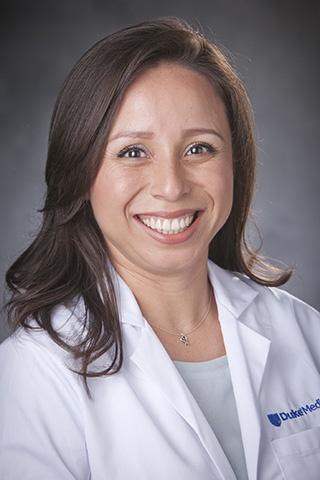She was only 18 years old, but had been through trauma that most women will never understand. During a recent international elective in La Paz, Bolivia, I had the opportunity to visit Raquel in her home. At first glance, her room was not too different from any other teenager; the walls were covered by posters of boy bands and a small table was decorated with make up and jewelry.
But then the reality of her life sets in; she is a single mother living with another single mother in a tiny room that is divided in half by a sheet. No restroom. No kitchen. No living room. She had been abandoned at a young age but fortunately found refuge at an orphanage. At 17 years old, it was time for her to move out and make a life for herself. Unfortunately, her whole life would be turned upside down, again. She was raped by a stranger on her way to work and became pregnant.
Bolivia is the second poorest country in Latin America and it is stories like Raquel’s that bring light to what statements like this look like on the ground in real life. It is likely that Raquel’s family could no longer afford to take care of her and abandoned her. It was poverty that led to Raquel taking a job in another town where she was even more vulnerable as she did not know anyone. Even more pressing than being the poorest country in Latin America, Bolivia has the highest rate of intimate-partner violence against women with 53 percent of Bolivian women reporting physical or sexual violence at the hands of a partner.
According to the World Health Organization, one in three women will experience violence (domestic, physical, emotional, sexual, financial abuse). Women like Raquel are at increased risk for mental illness, suicide and homicide, gynecologic problems, increased infections and obstetric problems.
For instance, studies have found that women who experience violence were twice as likely to experience depression, 1.5 times more likely to have a sexually transmitted infection, and twice as likely to have an abortion. As if these facts were not alarming enough, the health consequences of violence against women transcend their physical and mental health. Their children are also at increased risk for behavioral and emotional problems, perpetuating this vicious cycle by being recipients of violence or becoming an assailant, and higher rates of infant and child mortality and morbidity associated with malnutrition and infectious diseases.
So how was Raquel, a bright and hopeful girl, beating the odds? She had not abandoned her child, was not homeless, nor abusing substances. I believe it was the support she was receiving from HOPE Worldwide, an international charity that aims to deliver sustainable, high-impact, community-based services to the poor and needy.
The Home Visit
Sandy and Brenda, two Hope Worldwide volunteers, were the ones leading the home visit. They had met Raquel while she was in the orphanage and now that she was back in La Paz had reconnected with her. They were there as friends and as advocates. They asked many important questions that would help them identify ways to help her moving forward. Where was she working? How much was she being paid? How was she getting to work? Did she feel safe? Did she have enough food? When they were done, I jumped in to provide pertinent medical advice. It was essentially a routine postpartum visit and well child check; we talked about postpartum depression, ensured the child, Alex, was meeting his milestones, and I provided hands-on teaching for breastfeeding. Brenda took notes and explained how she would follow up on access to child care and where she can get pediatric care.
Raquel essentially received a combined social work and medical care visit. While Sandy and Brenda focused on social determinants of health, I provided medical advice. This is how we should provide medical care to all high-risk patients. Many patients come to clinic with layers of pre-dispositions to adverse outcomes that have nothing to do with genetics. This reality cannot be ignored if we are to improve health. As such, health care systems need to develop innovative and sustainable models of primary care that focus on the determinants of health. Under these models, young women like Raquel, would receive medical care that is truly comprehensive, compassionate and preventative.
If you want to know more about Hope Worldwide Bolivia, visit https://hopeinbolivia.wordpress.com/.
If you want to know more about Centro Medico Internacional, visit https://hopeinbolivia.wordpress.com/tag/centro-medico-internacional-hope/.
Everlyn Perez is a second-year resident with the Duke Family Medicine Residency Program. Email everlyn.perez@duke.edu with questions.
Editor’s note: Duke Family Medicine residents guest blog every month. Blogs represent the opinion of the author, not the Duke Family Medicine Residency Program, the Department of Community and Family Medicine or Duke University.
